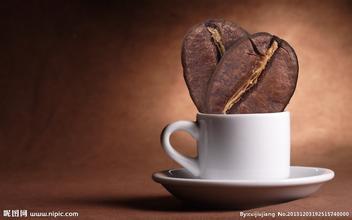Introduction to the flavor and taste characteristics of Puerto Rico boutique coffee bean manor
In Spanish, Puerto Rico means "port of affluence." Coffee in Puerto Rico dates back to 1736, when early Spanish immigrants brought coffee seedlings. Since the main cash crop was sugar cane in the 18th century, it has not been valued. In the early 19th century, French immigrants began migrating from the Mediterranean island of Corsica to Puerto Rico because of European political factors. Crowded by the Spanish, many French settled in Yauco, southwest of Puerto Rico. Yaoko's geographical environment is more hilly, so the French decided to grow coffee. After half a century of hard work, the quality has been recognized by the market and has established the position of Yauco Selecto coffee in the future.
In the 1960s, coffee produced in Puerto Rico's Yaoko region won the reputation of premium coffee throughout Europe. At that time, the emperors and queens of various countries regarded it as the best coffee, and many kings and queens of various countries and European popes only recognized Yao Ke coffee when choosing coffee. And for the Holy See designated to drink the royal coffee. Island Coffee-Puerto Rico
Puerto Rico's coffee beans are carefully grown, pure, aromatic, and granular. The best coffee is Yauco Selecto, which means "selected." Grown only on three farms in the south-west of the island, San Pedro, Caracolillo and La Juanita, Yocote Coffee has a strong aroma and a long aftertaste, making it a true premium coffee. The hilly areas southwest of Puerto Rico have mild climates, long maturity periods (October to February), and good clay soils. The people here have been using an eco-friendly, intensive cultivation method, picking only fully ripe beans and then rinsing them in a roller device for 48 hours. Yocote Select coffee beans are kept in sheepskin shells until they are marketed and removed when ordered to ensure optimum freshness. U.S. government officials, such as the FDA and USEA, are present at the time of the transaction to monitor compliance with federal regulations. There are also professional reviewers who randomly sample one bag from every 50 bags of coffee and use international gauges to evaluate the quality of the coffee beans, all to ensure that the real Yocote Coffee is a good deal.
Island Coffee-Puerto Rico
And Jaime Fortuno, president of Escogido Yauco agency, quietly watches all this work every year, even in the tiniest detail. Fortuno is an investment banker and a graduate of Harvard Business School. He was determined to seize every opportunity to open up a market for premium coffee in Puerto Rico. He expects a maximum annual production of 3000 bags of 45 kilograms each, which is less than 1 percent of the island's total coffee production.
That's why Puerto Rico and Puerto Rico Yuco Selecto are different. Yuco Selecto is the estate bean, a joint brand of San Pedro, Caracolillo and La Juanita in Puerto Rico.

Important Notice :
前街咖啡 FrontStreet Coffee has moved to new addredd:
FrontStreet Coffee Address: 315,Donghua East Road,GuangZhou
Tel:020 38364473
- Prev

Introduction to the characteristics of Costa Rican Fine Coffee Bean Flavor Manor
There are many excellent producing areas in Costa Rica, and the high-quality producing areas of Costa Rica have a common understanding of quality, that is, it requires the use of mature coffee fruits to ensure the production of high-quality coffee. Generally speaking, a large amount of water is used in the post-processing of picked coffee fruit, but the advanced production equipment in Costa Rica saves the use of water resources to the greatest extent.
- Next

Introduction to the flavor and taste characteristics of Jamaican coffee manor with rich and unique aroma
The earliest Jamaican Blue Mountain refers to the coffee produced by Warren Ford Farm and Silver Hill Farm, and the former is of the best quality; today's Jamaican Blue Mountain, refers to coffee beans growing in the Blue Mountains area east of Kingston, the capital of Jamaica (more than 1000 meters high). Now Mawei is the largest manor, its barrel is printed with M.B.C.F, and its products are often found in Taiwan. Tooth purchase
Related
- Detailed explanation of Jadeite planting Land in Panamanian Jadeite Manor introduction to the grading system of Jadeite competitive bidding, Red bid, Green bid and Rose Summer
- Story of Coffee planting in Brenka region of Costa Rica Stonehenge Manor anaerobic heavy honey treatment of flavor mouth
- What's on the barrel of Blue Mountain Coffee beans?
- Can American coffee also pull flowers? How to use hot American style to pull out a good-looking pattern?
- Can you make a cold extract with coffee beans? What is the right proportion for cold-extracted coffee formula?
- Indonesian PWN Gold Mandrine Coffee Origin Features Flavor How to Chong? Mandolin coffee is American.
- A brief introduction to the flavor characteristics of Brazilian yellow bourbon coffee beans
- What is the effect of different water quality on the flavor of cold-extracted coffee? What kind of water is best for brewing coffee?
- Why do you think of Rose Summer whenever you mention Panamanian coffee?
- Introduction to the characteristics of authentic blue mountain coffee bean producing areas? What is the CIB Coffee Authority in Jamaica?

